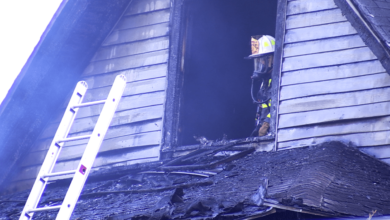What is Luminal B breast cancer? Olivia Munn’s diagnosis explained

(NEXSTAR) – Actress Olivia Munn revealed Wednesday she had surgery to remove both of her breasts after learning she had Luminal B breast cancer.
The diagnosis came after her OBGYN decided to calculate her breast cancer risk, despite receiving a “normal” mammogram result, Munn said.
“Dr. Aliabadi looked at factors like my age, familial breast cancer history, and the fact that I had my first child after the age of 30. She discovered my lifetime risk was at 37%. Because of that score, I was sent to get an MRI, which led to an ultrasound, which then led to a biopsy,” Munn wrote on Instagram. “The biopsy showed I had Luminal B cancer in both breasts.”
Luminal B is a subtype of breast cancer, characterized by the cancer’s genetic makeup. Doctors are increasingly studying cancer tumors’ DNA to understand what types of treatments would work best, according to Mayo Clinic. Based on the type of genetic markers they find, breast cancer might be sorted into one of four groups: Luminal A, Luminal B, HER2 positive, or basal-like.
Luminal B cancers are ER positive (meaning they are fueled by the hormone estrogen), PR negative (not fueled by progesterone), and have a growth-promoting protein.

Because of its genetic makeup, “Luminal B is an aggressive, fast-moving cancer,” Munn wrote.
“Luminal B tumors are of higher grade and worse prognosis compared to Luminal A,” according to a 2022 medical journal on breast cancer. The tumors tend to grow faster and have a worse prognosis for patients.
Treatment for Luminal B breast cancer usually involves chemotherapy. It can also involve hormone therapy to target the estrogen that fuels the tumors’ growth, as well as treatment to target the cancer’s growth proteins.
In Munn’s case, she opted for a double mastectomy 30 days after receiving her diagnosis.
“In the past ten months I have had four surgeries, so many days spent in bed that I can’t even count and have learned more about cancer, cancer treatment and hormones than I ever could have imagined,” Munn wrote.
Munn encouraged women to talk to their doctors about their personal risk of breast cancer, and advocate for early mammograms if their risk is elevated. According to the Centers for Disease Control and Prevention, about 240,000 women are diagnosed with breast cancer in the U.S. every year.
Powered by News Channel 9.




